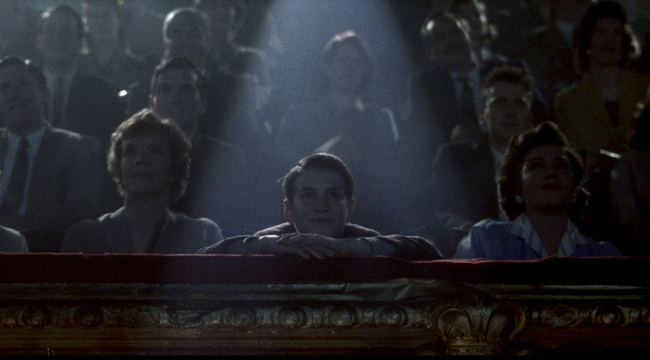Terence Davies on Movie Experiences He’ll Never Forget

I know you absolutely adore Doris Day—have you met her?
No—I don’t want to be disappointed. Gena Rowlands once said to me, “I can get you an introduction,” and I said, “I don’t want one. I want to remember her as I saw her in those wonderful musicals when I was growing up," because I do love her, I really do love her.
Is there anyone else you’ve idolized in that way?
Yes, but they’re all dead. Oh, I would have loved to have met Thelma Ritter. She was nominated six times and never won—she deserved to win.
Are there any up-and-coming English filmmakers you find intriguing?
I don’t go to the cinema anymore. I can’t suspend my disbelief. When you make films, you become conscious of everything, because of your syntax—the shots, where’s the logic of the sequence—especially when they cut all over the place.

No, over the years it’s progressed, especially with directors working with the same people, giving the same dull performances—you think, stop acting! Why would you want to watch the same performance? Why? It’s dull.
Since you’re not seeing new films, which old ones are you revisiting?
They tend to be the ones I discovered in my teens and twenties. A lot of the old films you couldn’t see then, there was no kind of art cinema, and so you saw them on the television. On Sunday afternoon, BBC One had a series called Love Story, and they showed Letter from an Unknown Woman, The Heiress, and they were revelations! And then I would go to see them when they were screened in London. But I just can’t suspend my disbelief anymore. I’m only ever drawn to a story that I can see—if I can see it, then I know what to do with it. If I can’t see it on the page, there’s no point for me. The films I love, I can remember where I saw them, the route I took, and where I sat—and it’s that vivid. They have a sort of wonderful glow about them. And some of them are terrible, but I don’t care! I always cry in Love Is a Many-Splendored Thing when she runs up the hill at the end.
I do think cinema has changed, because once you move out of the studio and do things in real locations it changes the writing and it changes acting, it just does. It’s very interesting. I was watching Murder, She Wrote, and June Allyson and Van Johnson have a scene together, and they were acting as if they were in a studio in the late forties, early fifties—you don’t see acting like that anymore, you just don’t!
What was the first movie you fell in love with?
When I was seven I saw Singin’ in the Rain—how could you not love it? Jean Hagen gives one of the great comic performances.






